Elections 2017 results: Who are the new metro mayors?
- Published
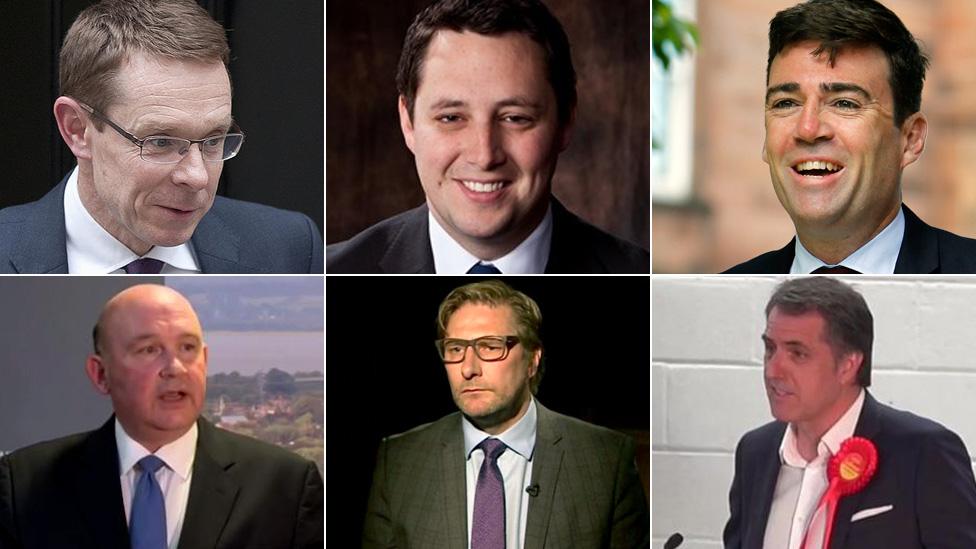
These are England's new metro mayors
Six new mayors have been elected to lead combined authorities in England. Who are they? What powers do they have? And what are they going to do in their new roles?
Combined authorities are groups of councils working together to assume powers, devolved from central government, over matters such as transport, housing, planning, skills and economic development.
The areas which elected mayors were:
Cambridgeshire and Peterborough
Greater Manchester
Liverpool City Region
Tees Valley
West of England
West Midlands
All of them have been granted a 30-year investment fund.
They are not intended to replace or take over from smaller councils. And their duties vary from area to area. For example, Greater Manchester's authority will have control over a £6bn health and social care budget, while Cambridgeshire and Peterborough and the Liverpool City Region will have powers over planning for health and social care.
The Greater Manchester mayor will also take over the powers of the region's elected Police and Crime Commissioner, Tony Lloyd.
Greater Manchester
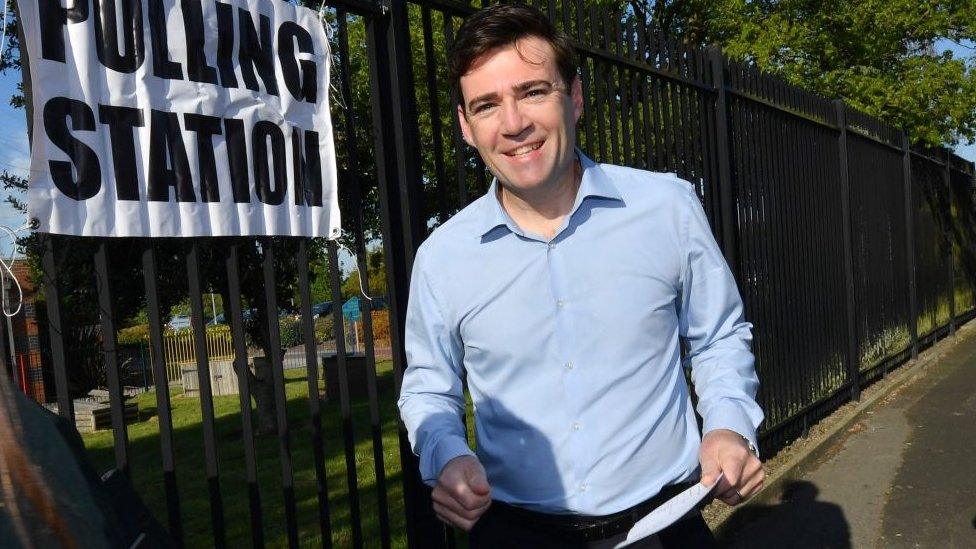
Andy Burnham will lead Greater Manchester
Mayor: Andy Burnham, Labour.
Who is he? The former MP for Leigh was health secretary under Gordon Brown, then shadow health secretary and shadow home secretary. He lost out to Jeremy Corbyn in the 2015 Labour leadership contest.
Powers: Greater Manchester formed the first combined authority in 2011 and has the widest range of powers of the six, including over health and social care, while the mayor replaces the police and crime commissioner. It has an adult skills budget, powers over apprenticeship grants for employers and strategic planning powers as well as control of transport.
Priorities: Improvements in education and skills, more affordable housing, reducing rough sleeping, cutting congestion, revitalising town centres.
How many people voted? Out of an electorate of 1,982,343 in the 10 boroughs of Greater Manchester, 573,543 votes were cast - a turnout of 28.93%. Mr Burnham took 63% of the vote.
Council areas: Bolton, Bury, Manchester, Oldham, Rochdale, Salford, Stockport, Tameside, Trafford and Wigan.
Pay: £110,000 a year.
West Midlands
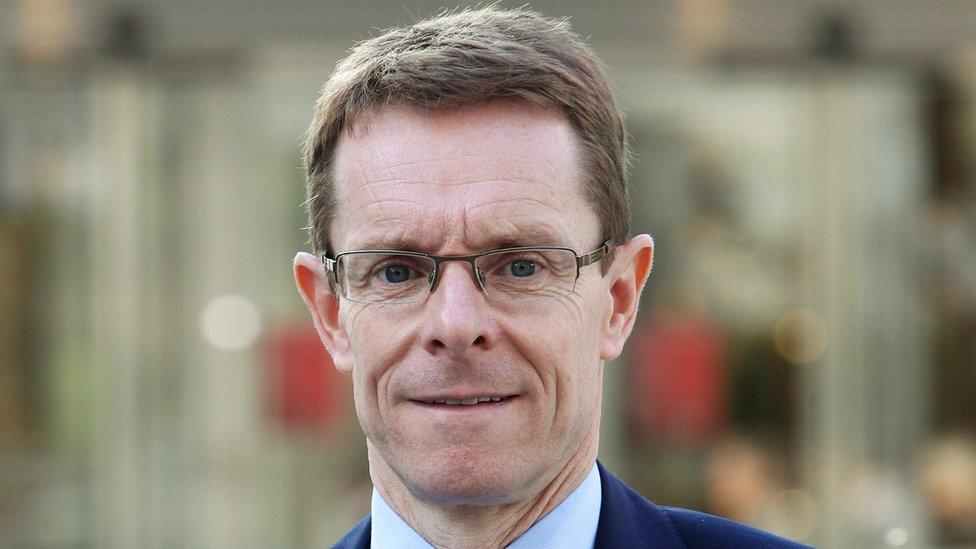
Andy Street won the West Midlands mayoralty over Labour's Siôn Simon
Mayor: Andy Street, Conservative.
Who is he? The former managing director of John Lewis, he has also chaired the Greater Birmingham and Solihull Local Enterprise Partnership. This is his first political role.
Powers: As leader of the new West Midlands Combined Authority, the mayor will oversee adult skills and about £8 billion worth of investment. There is also oversight of transport and power over housing.
Priorities: Skills and apprenticeships for young people, cutting congestion, improving transport, protecting the green belt, regenerating high streets, cutting crime, "managing money wisely".
How many people voted? Turnout was 26.68%. There were 523,201 voters out of a total electorate of 1,961,153. There were 216,280 votes for Mr Street in the first round, 1% more than for his Labour opponent. His total increased to 238,628 once second preferences were counted.
Council areas: Birmingham, Coventry, Wolverhampton, Dudley, Walsall, Sandwell, Solihull.
Pay: Expected to be £79,000 a year.
Liverpool City Region
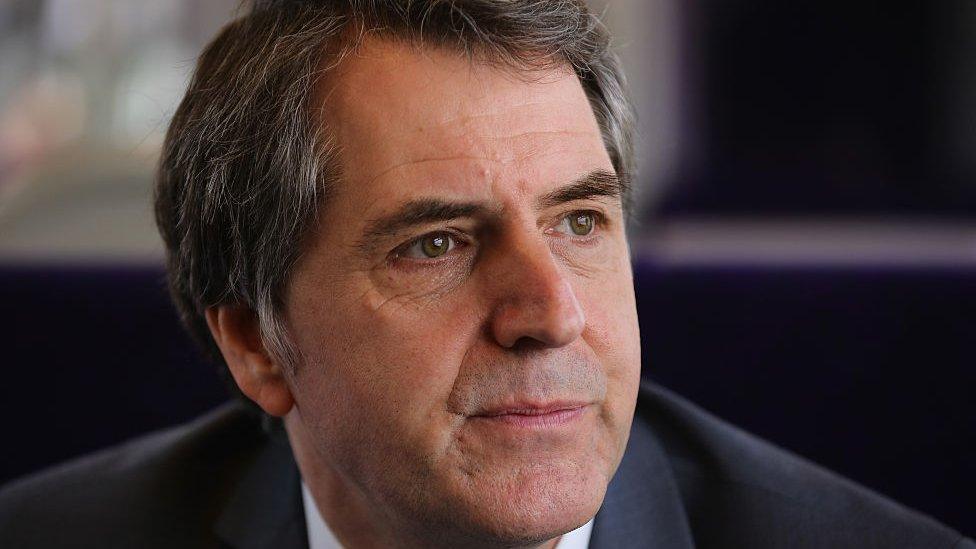
Liverpool City Region mayor Steve Rotheram
Mayor: Steve Rotheram, Labour.
Who is he? MP for Liverpool Walton since 2010. Before entering Parliament he was a bricklayer who set up his own construction business.
Powers: Leads the Liverpool City Region Combined Authority, which will use £458 million to invest over the next five years. There are also powers over transport, economic development and regeneration.
Priorities: Wants to "harness the power of the river Mersey" for green energy, improve people's skills and cut the fast tag Mersey Tunnel toll fees to £1.
How many people voted? Won resoundingly with 171,167 votes, 59.3% of those cast. Turnout was 26% with 288,660 voters out of an electorate of 1,116,495.
Council areas: Liverpool, Knowsley, Sefton, St Helens, and Wirral, and Halton in Cheshire.
Pay: £77,500 a year.
West of England

Conservative Tim Bowles has secured the regional mayor role for the West of England
Mayor: Tim Bowles, Conservative.
Who is he? Councillor for Winterbourne in South Gloucestershire, President of Bristol and South Gloucestershire Conservative Association.
Powers: Leader of the new West of England Combined Authority (WECA), overseeing £1 billion being transferred to the councils over 30 years to help plan new homes, regional transport and business growth. The mayor will also have the ability to franchise bus services and take charge of a new "key route network" of local authority roads that will be managed by the combined authority.
Priorities: Mr Bowles said he would work with the government to "make a success of Brexit", if the Conservatives win the general election on 8 June, re-open rail stations and increase services, back road improvements on the Avon Ring Road and M4 Junction 18a and the A36/46 link road. He also said he would protect green fields by promoting "urban regeneration" sites to build more affordable homes.
How many people voted? Mr Bowles won 70,300 votes. Turnout was only 29.7%, with 199,519 voting out of a possible 671,280.
Council areas: Bath and North East Somerset, Bristol, South Gloucestershire.
Pay: £62,000 a year.
Cambridgeshire and Peterborough
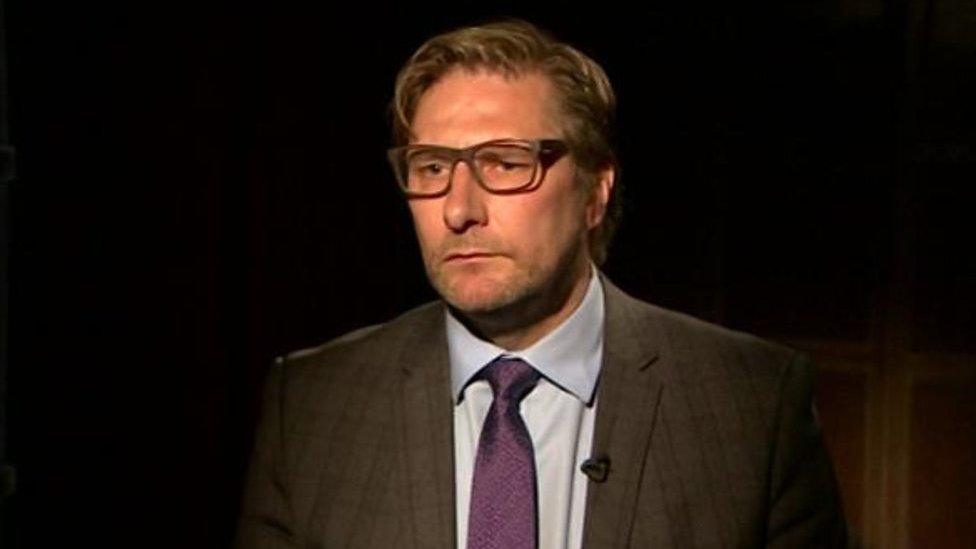
James Palmer is the new mayor for Cambridgeshire and Peterborough
Mayor: James Palmer, Conservative
Powers: A devolution deal worth £800 million in public funds includes 30 years' worth of investment in infrastructure and housing, control over education, skills, housing, planning and transport as well as powers over planning for health and social care.
Who is he? Leader of East Cambridgeshire District Council with a background in agriculture and dairy.
Priorities: Improving the planning system to get more homes built, protecting the green belt, supporting a new university for Peterborough, improving transport.
Council areas: Cambridgeshire and Peterborough.
Pay: To be confirmed.
Tees Valley
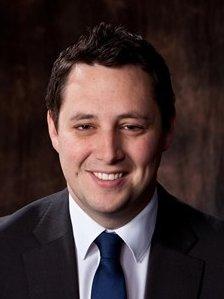
Ben Houchen will lead the Tees Valley Combined Authority
Mayor: Ben Houchen, Conservative.
Powers: Managing a budget of £15 million a year, direct control over adult skills and buses and making decisions affecting the wider region.
Who is he? Leader of the Conservative group on Stockton-on-Tees Borough Council. Just in his 30s, he is the youngest of the new metro mayors.
Priorities: Wants the authority to buy Teesside airport and "make it great again", set up an independent commission to look at the structure of Cleveland Police, which has says had failed residents and front line officers.
How many people voted? There were 40,278 first preference votes for Mr Houchen, which is 481 more than for his Labour opponent Sue Jeffrey. Second preferences took him to 48,578. Turnout was 102,100, which is 21% of the electorate.
Council areas: Darlington, Hartlepool, Middlesbrough, Redcar and Cleveland and Stockton-on-Tees.
Pay: £35,800 a year.
- Published29 September 2016
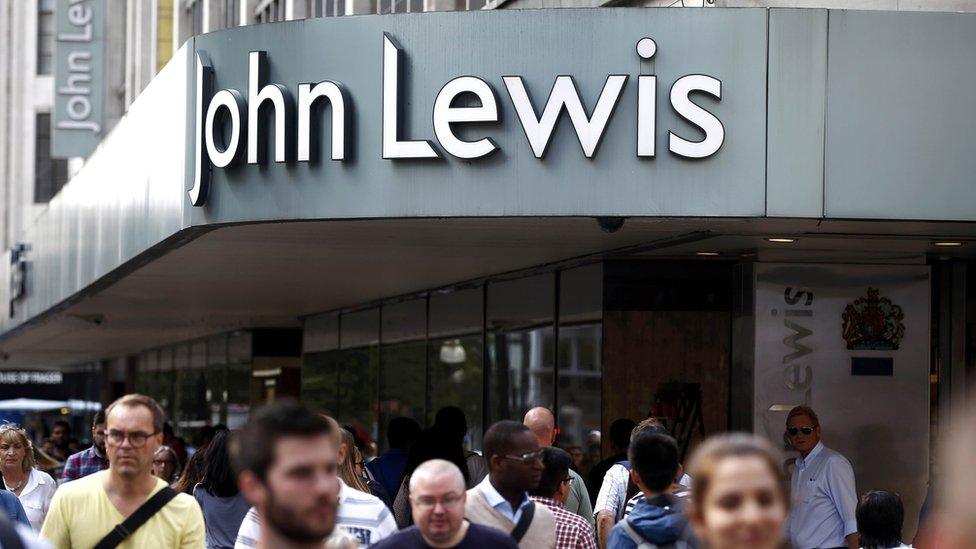
- Published5 May 2017
